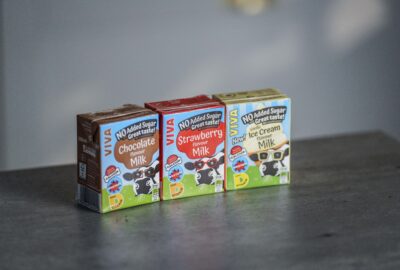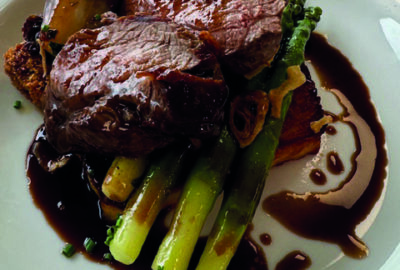By Margaret Wilson, chair of The British Beekeepers Association
Beekeeping is a fascinating craft and the products from the hive are increasingly popular ingredients for chefs. The best honey is unfiltered honey from healthy bees and there’s no better way of proving its provenance than by having hives on the premises.
Chefs can either learn how to handle bees themselves or contract a local beekeeper to provide them with honey in return for keeping some of their hives on the roof or the land surrounding their restaurant.
You can not only enjoy the presence of the bees yourself, and believe me they can be mesmerising, but creative chefs can offer close-ups with the bees by creating a safe observation area close to the hives.
Honeybees are regarded as livestock and it’s important that you make yourself aware of how to receive communications about diseases and other threats to bees from the government.
As you find out more about honeybees you will find they are as hardworking as you are! Worker bees in the hive rule the queen, instructing her to lay or stop laying by feeding or withdrawing feed from her. They keep the colony warm at a temperature of 35°C so that the larvae can develop properly.
The oldest bees do the job of foraging for pollen and nectar but they will have been working from day 1 when, as newly born bees, they turned round and cleaned out their cells.
Bees also collect resin from pine trees to seal drafts out and provide an antibacterial shield around the nest.
All good unfiltered honey will contain grains of pollen from the flowers and trees the honeybees have been foraging on. There is a new scheme that looks at the sources of the nectar and checks for pesticides etc in the honey – https://honey-monitoring.ac.uk/
So your honey could not only delight your customers in your wonderful dishes but also tell them an interesting tale about your local area. For instance, some London beekeepers were surprised this year to find that their honey showed that bees had been collecting heavily from Tree of Heaven which they had not realised was an important food source for them.
How To Acquire Bees
- Anyone intending to have hives should contact their
local beekeeping association: www.bbka.org.uk/find-beekeeping-near-you. They will run courses that will allow you to open a hive and inspect the bees. They may be able to supply a mentor to help you for the first year or find you someone to place their hives with you. - Bees can be bought from suppliers but it is far better to find local bees adapted to the climate where your business is. Beekeeping Associations can also help with this.
- Have more than a single hive if you want to maximise honey production.
- You could get two crops a year if conditions are favourable.
- All beekeepers should register with BeeBase which is the website for the National Bee Unit In order to get notified about pests and diseases: www.nationalbeeunit.com


